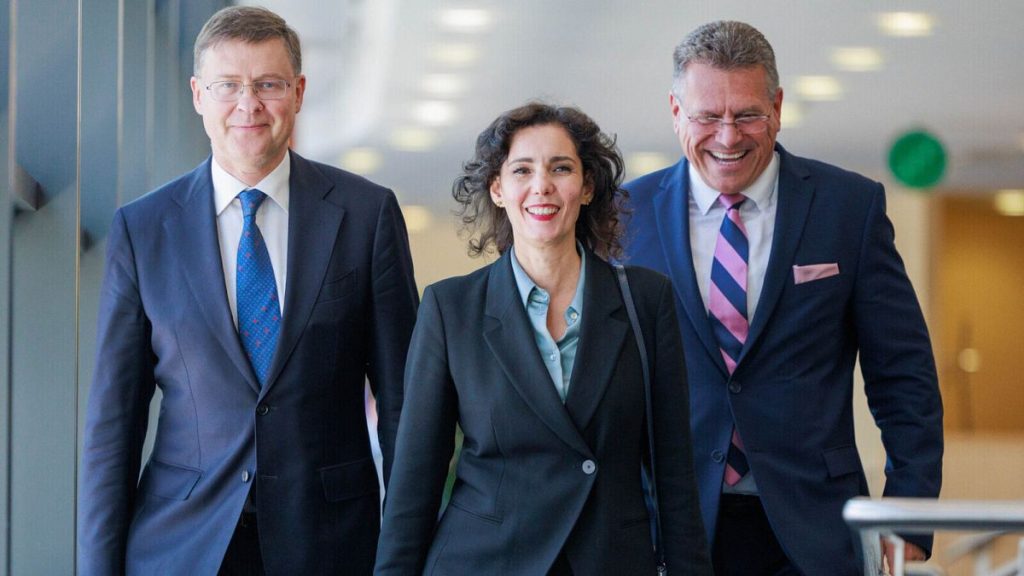The European Parliament is preparing to conduct rigorous screenings and public grillings of the 26 European Commissioner nominees put forth by Ursula von der Leyen. This process is aimed at uncovering any personal controversies, divisive political stances, conflicting interests, or lack of competence among the candidates. In the past, such issues have led to nominees being rejected by lawmakers. The urgency to get the new college of Commissioners up and running quickly could potentially force lawmakers to overlook some objections, but the current polarised and politically fractured state of the parliament raises the stakes of the hearings.
The first step in the process involves the nominees submitting conflict of interest forms outlining any previous jobs, financial assets, or relationships that may pose a conflict with their role as Commissioners. These forms are scrutinised by the parliament’s legal affairs committee within a tight timeframe of 24 to 48 hours. If conflicts are suspected, candidates may be questioned further. In the past, nominees have been rejected at this stage due to failure to disclose relevant information, such as Hungary’s László Trócsányi and Romania’s Rovana Plumb.
Candidates who pass the legal screening will then face public questioning in parliamentary hearings, where MEPs have the opportunity to assess their experiences, competences, and commitment to their new briefs. The structure of the next five-year term includes sweeping portfolios touching on multiple policy areas, necessitating a more interactive and interconnected approach. The decision on which committee will interrogate each candidate lies with the parliament’s political leaders after consulting with the committee chairs. The success rate of candidates in these hearings has historically been high, but this time, centrist groups are wary of candidates with ultraconservative views.
Once all members of the college have been approved, von der Leyen will formally present her team before the European Parliament’s plenary for a vote. A majority of votes cast are needed to appoint the full team, but with many opportunities for disruptions along the way, this vote could potentially be delayed until the end of the year. This uncertainty leaves the nominated team in limbo until the final formalities are completed. The urgency to get the new college of Commissioners up and running quickly is highlighted by concerns over potential Western support to Ukraine and the looming re-election of Donald Trump, which could impact the region.
Overall, the process of scrutinising and confirming European Commissioner nominees involves detailed conflict of interest screenings, public grillings in parliamentary hearings, and a final vote by the European Parliament. The urgency to form the new college of Commissioners quickly must be balanced with the need for thorough evaluation of the candidates to ensure they are suitable for their roles. The political polarisation and fragmentation of the parliament add complexity to the process, with lawmakers having the power to reject candidates based on a variety of factors. The outcome of this process will shape the composition and effectiveness of the next college of Commissioners and impact the European Union’s governance in the coming years.













